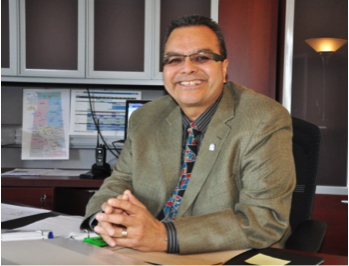As Black Lake grapples with a wave of suicide attempts, Health Canada said they have mental health resources standing at the ready – they’re just waiting for a call.
The remote northern community’s chief, Coreen Sayazie, said that about 30 people have attempted suicide there over the past two months. She criticized a move to limit overtime hours for the few mental health workers based in the community.
But Alexander Campbell, the Saskatchewan regional executive of Health Canada’s First Nations and Inuit Health Branch, said his department can deploy mental health teams from neighbouring regions. The federal government is “waiting for a request,” and hasn’t yet received one.
In the meantime, he said, no one is denied emergency medical services – even in the far north.
“Supports are available for everyone in crisis,” he stressed during an interview with the Daily Herald.
Campbell explained that his office held discussions with the Athabasca Health Authority, which provides healthcare services to isolated reserves like Black Lake, Fond du Lac and Hatchet Lake.
“They are maintaining their level of service right now and they will be in touch with us if additional supports are needed,” he said.
“We will be waiting for a request from the community of Black Lake or Athabasca Health Authority.” Upon that request, he said, “we will respond by providing support and by encouraging other mental wellness teams to provide assistance.”
Jennifer Conley, the Athabasca Health Authority’s chief executive, confirmed that Health Canada has increased funding for her region’s mental wellness team, an interdisciplinary group of professionals who provide culturally sensitive support.
Conley appreciates the new funding, and agreed with Campbell that no one experiencing a mental health crisis gets turned away. But she said the needs of the community are immense, and her resources limited.
“The Athabasca Health Authority is committed to patient care and would never deny requests for crisis support when needed or requested,” she said. “With that being said, I do agree with Chief Sayazie that more mental health services are needed in the community.”
She hasn’t yet called in temporary reinforcements from other regions. The authority, she said, wants long-term therapists – based in the Athabasca basin – to combat an on-going problem.
“Suicides in Northern Saskatchewan are on-going concern,” she said. “The rates in our region continue to be the highest in Saskatchewan.”
For more on this story, please see the Feb. 10 print or e-edition of the Daily Herald.


